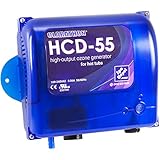Learn all about the subtle difference between hot tub and Jacuzzi. Find out which one is right for you and how to make the most of your relaxation time.
Hot Tub
A hot tub is a large tub of heated water for relaxation and hydrotherapy. Hot tubs are typically installed outdoors but can also be installed indoors in a specially designed space. Hot tubs come in various sizes and shapes and can be powered by electricity, natural gas, or propane.
Jacuzzi
Jacuzzi is a brand name of hot tub that was first introduced in 1956. Jacuzzi hot tubs are known for their high quality and innovative features. Jacuzzi hot tubs are typically more expensive than other brands of hot tubs, but they offer some advantages, such as:
- Powerful jets that provide a deep massage.
- Durable construction.
- Energy efficiency.
- A wide range of features and options.
What is the Difference Between Hot Tub and Jacuzzi?
A hot tub is a large tub of heated water that people often use for relaxation, hydrotherapy, or fun. A Jacuzzi is the brand name of a company that manufactures hot tubs and other spa equipment. All Jacuzzis are hot tubs, but not all hot tubs are Jacuzzis.
The term Jacuzzi is sometimes used generically to refer to any hot tub or spa with jets or bubblers, but this needs to be corrected. Only hot tubs made by the Jacuzzi company can be called Jacuzzis. Other brands of hot tubs may have similar features, but they are not Jacuzzis.
A spa is another term that can be confusing. It can mean either a hot tub or a Jacuzzi, but it usually refers to a tub with solid jets for massages and hydrotherapy uses. Spas are often found in hotels, resorts, or wellness centers.
The main difference between a hot tub and a Jacuzzi is the brand name. A Jacuzzi is a type of hot tub, but a hot tub is not necessarily a Jacuzzi. A spa can be either a hot tub or a Jacuzzi, but it generally has more therapeutic functions.
Here is a table comparing hot tubs, Jacuzzis, and spas:
| Feature | Hot Tub | Jacuzzi | Spa |
|---|---|---|---|
| Brand name | No | Yes | No |
| Jets | Optional | Yes | Optional |
| Size | Various | Various | Various |
| Purpose | Relaxation/Therapy | Relaxation/Therapy | Therapy/Recreation |
| Location | Indoor/Outdoor | Indoor/Outdoor | Indoor/Outdoor |
How To Raise Stabilizer In The Hot Tub
The best way to avoid this problem is to add a stabilizer to the water. These chemicals come in liquid or powder form; you should buy one with the correct temperature rating for your spa.
Want to enjoy a relaxing soak in your hot tub without worrying about unbalanced water? Follow these simple tips to raise the stabilizer level:
- Check the pH level and adjust it if necessary.
- Add stabilizer according to the manufacturer’s directions.
- Let the filter run for 24 hours to circulate the stabilizer throughout the system.
- Test the pH level again after 24 hours and make any necessary adjustments.
- Check the filter and water supply if the pH level is too low.
- Talk to a pool professional if you have a chemical feeder that needs calibration.
- Remember, flat water is critical to a great hot tub experience!
What Is an Ozonator For a Hot Tub?
An Ozonator is a device that uses ozone to clean and disinfect hot tubs. Ozone is a gas naturally present in the air and is produced by lightning. It is also used in water treatment plants to purify water. Ozone is effective at killing bacteria, viruses, and other microorganisms.
It also helps to keep the water clean and clear by breaking down organic matter.
Ozonators are available in different sizes and models to fit various hot tubs. They can be installed inside the hot tub or outside of it. Most ozonators come with a timer, so they can be set to turn on and off automatically. Ozonators typically last for about two years before they need to be replaced.
Clarathon HCD-55 Spa Ozonator Kit
Product Features:
- Clarathon HCD55 HCD55 hot Tub Ozonator Kit establishes the benchmark for Ozonator generators. New CD technology to ensure many years of trouble-free service.
- For spas & swim spas, up to 1500 gallons.
- Universal Voltage: 120V/240V. It includes 6 feet. Tubing with a Check Valve and Hose Clamps Power cord with an AMP-4 connector and complete installation instructions.
- 55mg/hr ozone. 100-240VAC autosensing. UL certified. 1yr. Factory warranty.
Continue reading about Hot Tub without itchiness
For additional information, visit Hot Tub & Patio, or if you’re interested in reading reviews and guides for hot tubs, visit Hot Tub Guides and Reviews.
Final Words:
Jacuzzis are an improvement over a traditional bathtub. It offers a relaxing, luxurious way to spend time in the evening or on the weekend. Most people believe they can get away with not needing to add chemicals to their hot tubs. However, this is not true. You must add chemicals to maintain good water quality and prevent algae from growing inside your hot tub. For more about jacuzzi vs hottub va spa.


No Responses